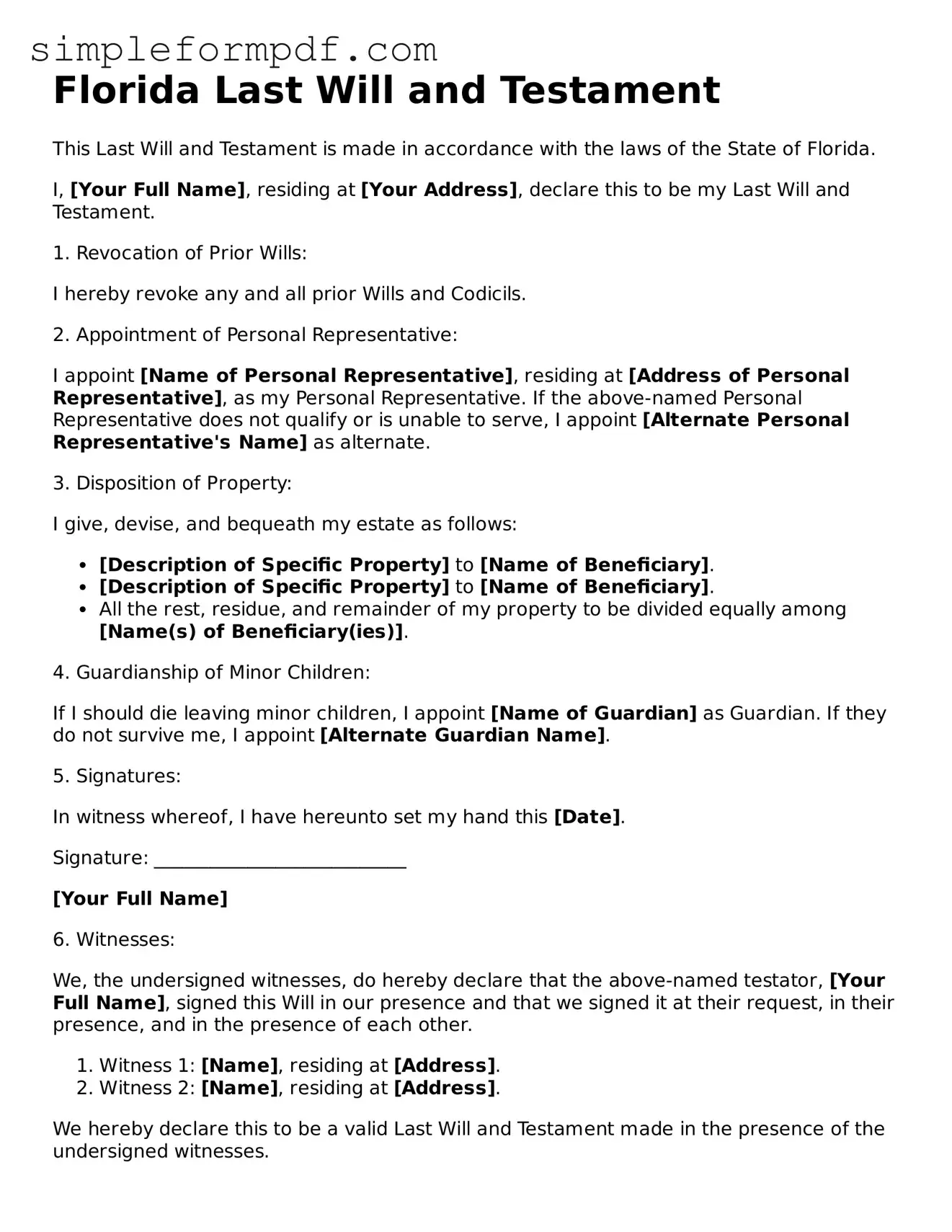Free Last Will and Testament Form for the State of Florida
A Florida Last Will and Testament form is a legal document that outlines how an individual's assets will be distributed upon their death. This form serves as a crucial tool for ensuring that your wishes are honored and can provide peace of mind for you and your loved ones. To begin the process of securing your legacy, consider filling out the form by clicking the button below.
Launch Editor

Free Last Will and Testament Form for the State of Florida
Launch Editor
Need instant form completion?
Finish Last Will and Testament online in just a few minutes.
Launch Editor
or
Download PDF
